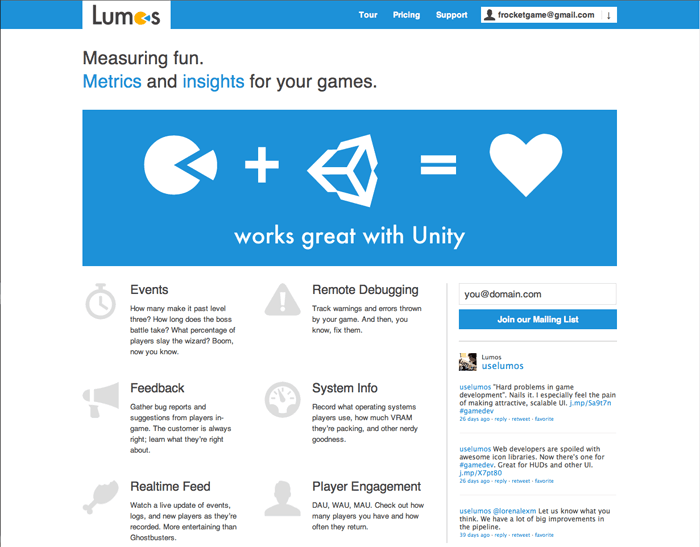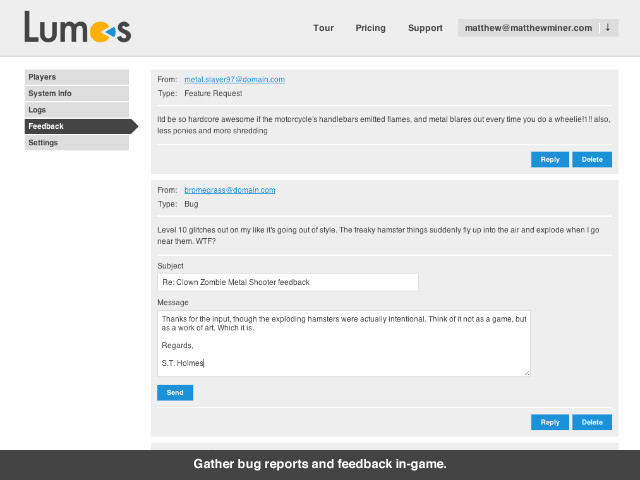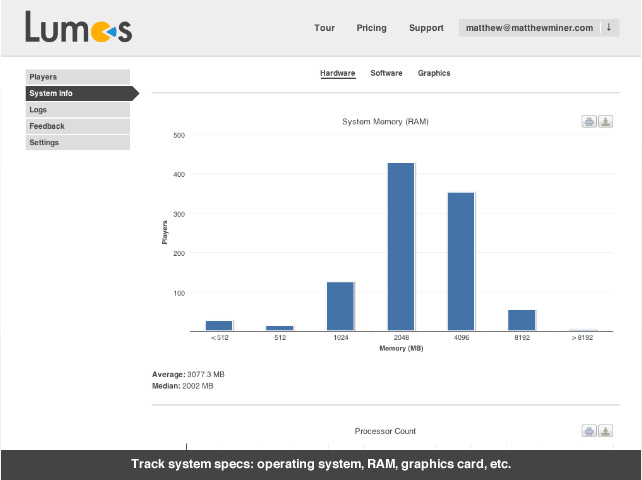Lumos
Rebel Hippo Inc. (2011)
Web Developer
Website
www.uselumos.comSUMMARY
Lumos Game Analytics was a free drag-and-drop analytics service designed specifically for Unity games. It was developed via my own company with co-founder Matthew Miner.EXPERIENCE
Lumos was initially created by Matthew Miner, a childhood friend and colleague during my time at OverInteractive Media Inc. (OMI) After our experience at OMI, we had extensively used several web analytics solutions for dimeRocker, and became baffled when we were unable to find an analytics solution for games. Matthew left OMI to return to his studies at the University of Waterloo and began developing Lumos Game Analytics in his spare time. As I shared an interest in the product, I lent a hand from time to time.
The platform was developed using Google App Engine, an all-in-one solution for building scalable web services. The backend was written in Python, a welcome departure from our experience with PHP. A very simple Unity library was created, allowing Unity developers to add Lumos to their game with literally no coding required.
When Lumos launched it offered features such as custom events, automated events (level loaded, etc), error/warning/log tracking, hardware & software statistics, and a live activity feed. Lumos became quite popular, tracking analytics for millions of players.
It was free to use because it didn't cost us anything to operate thanks to Google giving about $20K in App Engine credit to University students like Matthew. We also hadn't had the time or means to implement a payable subscription to the service. This started to become problematic once massively popular games started using our product and our App Engine credits were running low. Google also raised their prices on a few crucial aspects of App Engine, causing enough panick that we decided we'd need to migrate the service elsewhere.
In 2013 we secured investment to work on Lumos fulltime. We recreated the entire service using Amazon Web Services and migrated all games and their data. Read more about the second version of Lumos.




